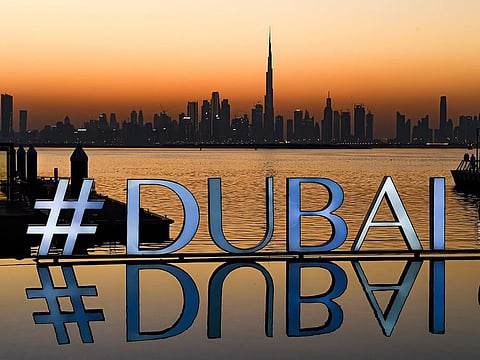Dubai's hotels will now build their turnaround plans around events and conferences
2021 occupancy levels so far show UAE among world's 'best performing', says STR

Dubai: Hotels in Dubai and elsewhere in the UAE will be hoping a return of events – even in a truncated form – can help them restore occupancy levels.
Occupancy rates in February for UAE hotels were at 59.7 per cent, down about 22 per cent from a year earlier. It was from March 2020 that the local authorities launched stringent measures to arrest the spread of COVID-19 and grounded passenger flights.
Last month, average daily rates at UAE were down nearly 19 per cent to Dh421.42, according to data from the hospitality consultancy STR. And during the month, revenue per available room fell 36 per cent to Dh251.53.
Different way to look
But if anyone looks beyond the headline numbers, they would have reason to hope… that a general improvement can be sighted in the not too distant future. “UAE hotels started 2021 much like they finished 2020, with steady improvement - and some of the world’s best performing occupancy levels,” said Philip Wooller, STR’s Director for the Middle East and Africa.
“While domestic demand has remained the primary source of business, the biggest challenge are the restrictions on UK travelers.”
The UK added UAE to its travel ban late last year after new COVID-19 strains showed up there. The move effectively put a stop to the world’s busiest air route – London-Dubai - at that time.
The way Wooller sees it, these restrictions will have only delayed an eventual recovery. “With expectations that the pandemic situation improves and tourism picks up, we are forecasting significant recovery for the [UAE] hotel sector later in the year,” he added.
Events definitely boost
The return of exhibitions and conferences – even adhering to strict controls on health guidelines – will speed up the process. Abu Dhabi showed how it can be done, by hosting an in-person defence industry event IDEX over five days from February 21.
IDEX helped Abu Dhabi’s hotel industry record its best performance since the beginning of the pandemic in March last year. Occupancy stood at 65.4 per cent, down only 15.4 per cent from a year earlier. Meanwhile, average daily rates were down by a manageable 12.4 per cent at Dh361.07, according to STR.
The event brought more than 62,000 attendees across those five days. “When looking at daily data, Abu Dhabi hotels saw their highest ADR (Dh606.80) and revenue per available room (Dh446.57) levels for the month on February 21 - the first day of the conference,” said STR.
A look back
How did UAE’s hotel sector fare during December and early January? Occupancy rates fell 19 per cent year-over-year to 63.2 per cent. Dubai’s hotels displayed the best performance with 66.4 per cent, but still down about 18 per cent from a year earlier. Average daily rates stood at Dh785, only lower by around 6 per cent. “Resort properties outperformed the overall market and showcased strong rate resilience due to stronger appeal among international and domestic guests and higher perceived safety environment,” said Yani Eftimov, Senior Consultant at TRI Consulting. Abu Dhabi recorded steeper declines across all top-line performance indicators, with occupancies down 22.1 percentage points to 57.6 per cent. Daily rates, on average, dropped nearly 32 per cent to Dh354.
Planning an Expo bounce back
Stakeholders in Dubai’s tourism industry will have noticed those numbers, as they prepare for the home stretch leading up to the Expo in October. This, according to Dubai Department of Tourism and Commerce Marketing, will provide the best pathway to building the “second-half rebound in 2020”.
“While we are encouraged by the success of the strong safety procedures deployed across all tourism touchpoints, we will continue to proactively update safety protocols in the hospitality, tourism and travel sectors in accordance with the changing situation,” said Helal Saeed Almarri, Director-General, Dubai Tourism, in a recent statement.
Measures are being taken to ensure the emirate is a safe spot for tourists. Following the New Year’s Eve celebrations, Dubai Tourism conducted nearly 10,000 inspections of hotels and recreational facilities. In all, 274 violations were recorded and 47 facilities closed, marking a compliance rate of 89 per cent.
More of the same will be what’s needed to get travellers to return… and guests to show up at hotels.
Sign up for the Daily Briefing
Get the latest news and updates straight to your inbox









